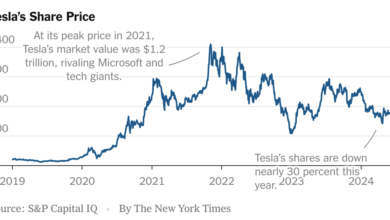Digitization of Automobiles: Joint Development between Govt, Carmakers Urgently Needed in Japan

15:47 JST, May 22, 2024
We are entering an era in which automobile digitization strategies will determine the competitiveness of manufacturers. It is important for the government and automakers to work together to enhance development capabilities.
The government has announced a draft strategy for the digitization of the automobile industry. It forecasts that global sales of next-generation vehicles, referred to as software-defined vehicles (SDVs), will grow to a maximum of 41 million units in 2030, and has set a goal of increasing Japanese automakers’ global market share of SDVs to 30% in the year.
SDVs are characterized by their ability to improve not only map information, games, movies and other entertainment services, but also driving assistance systems and accident prevention functions, by updating software via the internet.
Similar to smartphones, users can add new functions and enhance performance through the internet, even after purchasing a vehicle.
To achieve the goal, the draft strategy calls for domestic automakers to work together to develop software. Tesla Inc. of the United States and BYD Co. of China are already ahead of the competition, and it is difficult for Japanese companies to compete with them even if domestic carmakers make individual efforts. Collaboration beyond corporate boundaries is vital.
So far, automotive performance has been determined by the quality of hardware such as engines and brakes. This has been the source of the competitiveness of Japanese automakers.
The basic functions of newer cars, such as operating the steering wheel and braking, are controlled by software as well. It can be said that in the future, the superiority of the software will have an even greater impact on competitiveness.
Japanese automakers have a 30% share of the global market, including gasoline-powered vehicles. However, their share for electric vehicles, which are at the core of SDVs, is only a small percentage. The government and companies are feeling a strong sense of urgency.
To help the automobile industry, which shores up the Japanese economy, remain internationally competitive, the government intends to financially support cultivating digitally savvy human resources and developing technology. It is hoped that specific measures will be outlined to make this an effective policy.
Toyota Motor Corp., Honda Motor Co. and Nissan Motor Co. said they will encourage collaboration in software development. Hopefully, these companies will promote common specifications for the basic aspects of the software to improve efficiency. The challenge will be how to coordinate between their collaborative efforts and the development of their respective cutting-edge technologies.
The draft strategy also proposes that Japanese manufacturers cooperate with each other in the development of such products as high-performance in-vehicle semiconductors and high-precision 3D maps.
These technologies are necessary for fully automated driving in the future. However, early commercialization of such driving is still difficult to foresee due to persistent public anxiety. Improving safety must be the top priority when implementing the strategy for the digitization of automobiles.
(From The Yomiuri Shimbun, May 22, 2024)



